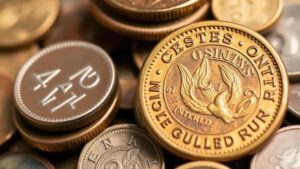Decoding Historical Folklore With Analytical Reasoning for Treasure Leads
Decoding Historical Folklore With Analytical Reasoning for Treasure Leads
Historical folklore serves as a rich tapestry of cultural narratives, often embedded with clues and allegories that can guide treasure hunters and historians alike. By employing analytical reasoning, individuals can decode these narratives to uncover potential treasure leads. This article will explore the methodology behind analyzing folklore, case studies, and practical applications in treasure hunting.
Understanding Folklore and Its Significance
Folklore encompasses traditional beliefs, myths, and stories passed down through generations. e tales often reflect the values, fears, and experiences of the societies from which they originate. Importantly, folklore can serve as a cryptic repository of historical events and locations where treasures may lie hidden. Consider the following examples:
- The legend of the Seven Cities of Gold, which fueled extensive exploration in the Americas, demonstrates how folklore can lead adventurers to search for mythical places that may have had historical parallels.
- In Irish folklore, tales of the Leprechaun’s pot of gold often reference hidden wealth that may correspond to actual treasure hoards from various historical contexts.
The Role of Analytical Reasoning in Folklore Interpretation
Analytical reasoning involves breaking down complex information into simpler parts for better understanding. When applied to folklore, this method can yield insights into potential treasure locations. Key strategies include:
- Contextual Analysis: Evaluating the historical and cultural background of the folklore provides insight into its origins and possible truths.
- Symbolic Interpretation: Many stories use symbols as metaphors for greater truths; understanding these can lead to hidden meanings related to treasure.
- Comparative Folklore Studies: Investigating similar stories across different cultures can highlight consistent themes or clues regarding actual locations.
Case Studies: Success Through Folklore Analysis
Several famous treasure discoveries have been the result of applying analytical reasoning to folklore. One notable case is the discovery of gold in the Lost Dutchman Mine in Arizona. Legend tells of a rich gold mine hidden in the mountains, accessible only to those who understand the clues embedded within local folklore.
Another compelling example is the search for the treasure of Captain Kidd, whose tales of buried riches became part of American folklore. Analytical reasoning led treasure hunters to investigate historical documents, such as Captain Kidd’s logs and the cultural significance of particular islands mentioned in the stories, resulting in several discoveries.
Practical Applications for Modern Treasure Hunters
For both amateur and professional treasure hunters, applying analytical reasoning to folklore can enhance the search process. Here are actionable takeaways:
- Research Local Folklore: Begin by gathering folklore from the area of interest; local libraries or historical societies can be invaluable resources.
- Document Patterns: Identify recurring themes or symbols in the folklore that may relate to treasure, and keep a record of these insights for further reference.
- Collaborate with Experts: Consulting with folklorists or historians can provide a deeper understanding and alternative insights that may not be immediately apparent.
Conclusion
Decoding historical folklore through analytical reasoning not only reveals the cultural richness of a narrative but can also lead treasure hunters on fruitful expeditions. By understanding the significance of folklore and applying systematic reasoning, treasure seekers can uncover hidden truths and leads that could result in valuable discoveries. So, embracing folklore as both a cultural artifact and a roadmap for treasure hunting is a worthy approach for anyone passionate about uncovering the mysteries of the past.
